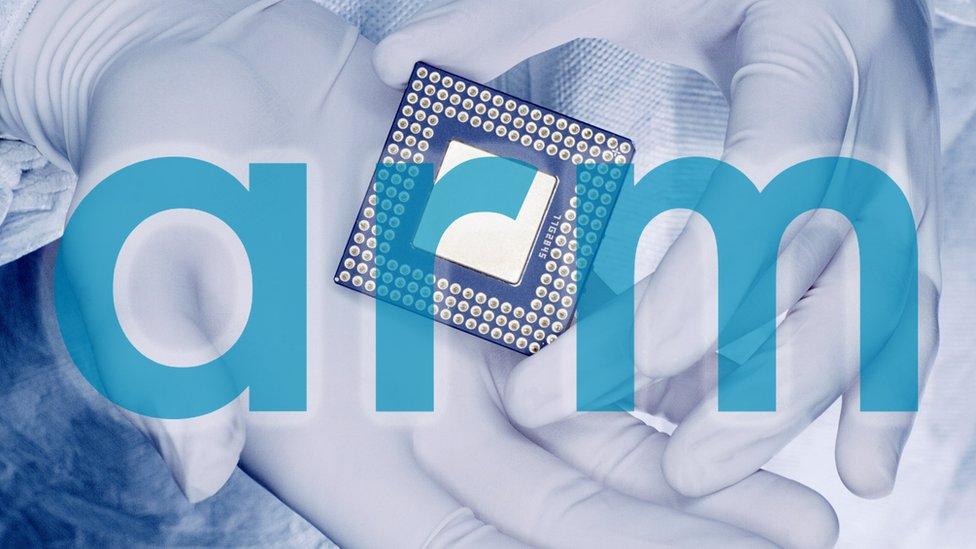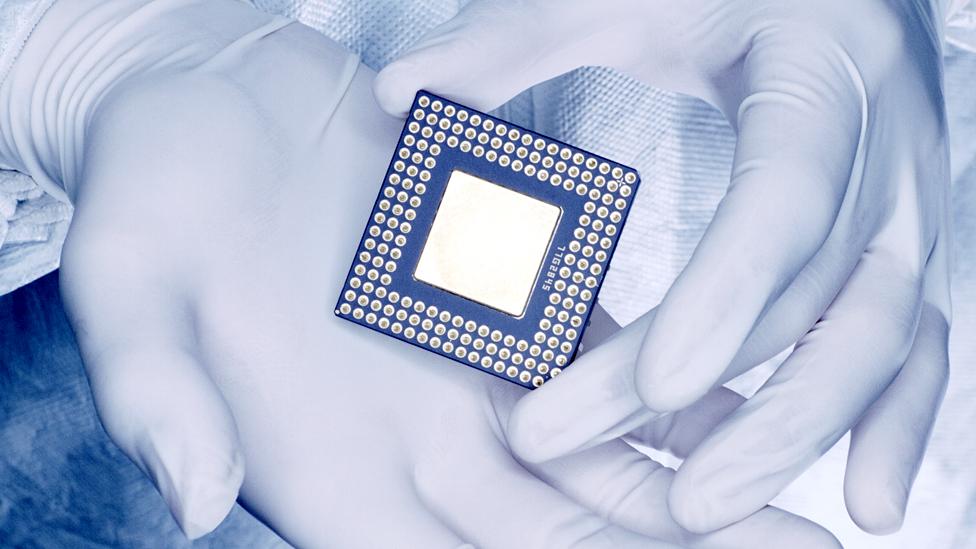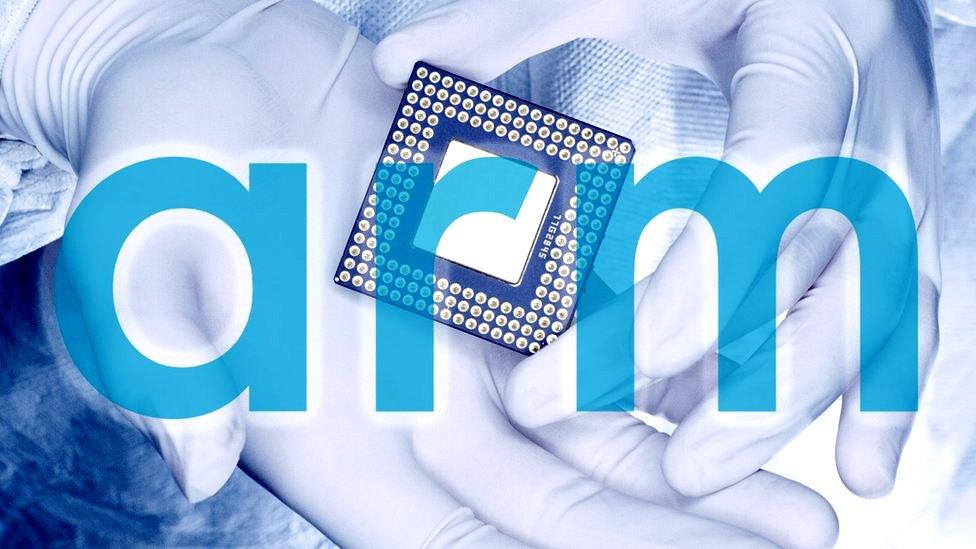Nvidia takeover of chip designer Arm investigated
- Published

The Competition and Markets Authority (CMA) has announced an investigation into a $40bn (£29.5bn) takeover of UK computer chip designer Arm Holdings.
US graphics chip specialist Nvidia agreed the deal to buy the company from Japan's Softbank Group in September last year.
Britain's competition watchdog has been scrutinising the sale, with the two companies expecting some action.
Arm technology is at the heart of most smartphones and other devices.
Its designs underpin processors made by Apple, Samsung, Sony and Huawei.
The CMA has invited "interested third parties" to comment on the impact the merger could have on competition in the UK.
Its formal investigation will begin later this year.
The CMA said it is likely to consider whether, following the takeover, Arm has an incentive to withdraw, raise prices or reduce the quality of its intellectual property licensing services to Nvidia's rivals.
"The chip technology industry is worth billions, and critical to many of the products that we use most in our everyday lives," said CMA chief executive Andrea Coscelli.
"We will work closely with other competition authorities around the world to carefully consider the impact of the deal and ensure that it doesn't ultimately result in consumers facing more expensive, or lower quality, products."
Until now, the European Commission was responsible for most large and complex competition cases involving the UK.
The CMA has taken over these responsibilities following the UK's departure from the European Union.
Its remit, by law, is to assess the potential impact of a merger on competition.
WATCH: Nvidia chief explains why he wants to buy Arm
Last year, more than 2,000 business leaders signed an open letter, external calling on the prime minister to stop the merger, saying UK jobs and influence could be lost.
Nvidia has promised to keep the business based in the UK, to hire more staff, and to retain Arm's brand.
It said that the deal would create "the premier computing company for the age of artificial intelligence".
And the company added: "We believe the approval process will take about 18 months from when we signed the deal. The regulatory process is confidential and we won't be providing comment on milestones along the way."


When news emerged of the sale of what is probably the most significant British tech business of the last 30 years, there was widespread dismay with calls for the government to intervene.
But that was in 2016 when Japan's SoftBank bought Arm.
The 2020 deal which saw SoftBank sell Arm to Nvidia was met in the UK with more of a resigned shrug - apart from the fierce opposition of the Cambridge-based business's co-founder Hermann Hauser.
After all, what power could British regulators have over a deal involving a Japanese seller and an American buyer?
Nevertheless, the CMA has felt the need to step in, perhaps to lay down a marker now that the UK is outside the EU and it is free to flex its regulatory muscles.
This, however, is very much a first step which may not lead anywhere.
Nvidia will be more worried about other regulators around the world who may listen to its rivals' complaints that, by taking over what was Arm's neutral licensing platform, it will stifle competition in the chip market.
China, in particular, has already made clear that it isn't happy about a deal which gives so much power to an American giant at a time when the US has sought to deny Chinese firms access to chip technology.
- Published14 September 2020

- Published8 December 2020

- Published6 August 2020

- Published14 September 2020